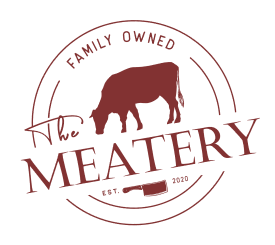Understanding Wagyu Beef: Definition and Origins
Wagyu beef is an internationally renowned and luxurious beef variety that originated from Japan. The word "Wagyu" translates literally to "Japanese cow" and refers specifically to cattle breeds genetically predisposed to exceptional marbling—distinctive intramuscular fat distribution that enhances tenderness and flavor. There are four primary Wagyu breeds: Japanese Black, Japanese Brown, Japanese Polled, and Japanese Shorthorn, with Japanese Black being the most widespread and revered globally.
The historical roots of Wagyu cattle date back to the early 19th century. At this time, Japan undertook rigorous efforts through government-controlled breeding programs aimed at enhancing the quality of domestic beef cattle. These meticulous breeding programs focused on selecting cattle with superior marbling, flavor, and tenderness traits. Over generations, these rigorous practices produced the exceptional Wagyu breeds celebrated today.
What Makes Wagyu Beef Unique?
Genetic Excellence
The genetic predisposition of Wagyu cattle to develop intramuscular fat marbling sets Wagyu beef apart from other types of beef. Marbling is responsible for the tender, buttery texture and incomparable flavor of Wagyu. Each breed carries specific genetic markers that contribute uniquely to the quality and characteristics of the meat.
Marbling and Grading
In Japan, Wagyu beef is meticulously graded based on marbling, color, firmness, and fat quality. The Japanese grading scale ranges from A1 to A5, with A5 representing the highest standard, indicating superior marbling and impeccable meat quality. The higher the grade, the richer and more delicate the meat’s flavor and texture.
Health Benefits of Wagyu Beef
Although Wagyu beef contains significantly more fat than traditional beef, this fat primarily consists of beneficial monounsaturated fatty acids, similar to those found in olive oil. These fats support cardiovascular health by helping reduce harmful cholesterol levels.
Additionally, Wagyu beef is rich in conjugated linoleic acid (CLA), an omega-6 fatty acid with numerous potential health benefits, including aiding weight management, reducing inflammation, and strengthening immune response.
Moreover, Wagyu beef is an excellent source of high-quality protein, vitamins, and essential minerals. It contains significant amounts of vitamins B6 and B12, iron, zinc, and selenium—crucial nutrients that support energy production, immune function, and antioxidant activities in the body.
Is Wagyu Beef Healthy to Consume Regularly?
Due to its high-fat content, Wagyu beef should be consumed in moderation. Regular, excessive consumption can lead to potential health concerns such as weight gain, high cholesterol, and increased risk for cardiovascular disease. Additionally, the premium price of Wagyu beef often limits its practicality for frequent meals.
For a balanced and healthy diet, it’s advisable to enjoy Wagyu beef as an occasional indulgence rather than a daily staple. Balancing consumption of Wagyu with lean proteins, vegetables, fruits, and whole grains ensures dietary balance and nutritional adequacy.
Nutritional Profile of Wagyu Compared to Other Beef Types
To fully appreciate Wagyu beef’s unique nutritional characteristics, consider this comparison per 100 grams:
-
Wagyu Beef: Calories: 489, Total Fat: 47g, Saturated Fat: 20g, Protein: 23g
-
Regular Beef: Calories: 277, Total Fat: 21g, Saturated Fat: 9g, Protein: 23g
-
Lean Beef: Calories: 176, Total Fat: 7g, Saturated Fat: 3g, Protein: 26g
Despite higher fat and calorie content, Wagyu beef includes a higher percentage of beneficial monounsaturated fats and CLA, distinguishing it nutritionally from conventional beef sources.
Wagyu Cattle Diet and Lifestyle
The superior taste and texture of Wagyu beef are heavily influenced by the cattle’s unique diet and specialized rearing practices. Wagyu cattle traditionally consume carefully balanced diets primarily consisting of quality grains like rice, barley, and wheat, combined with fibrous materials like hay or pasture grass.
Additionally, Japanese Wagyu farmers often provide their cattle with beer or sake, which enhances appetite and digestion. This unique practice, coupled with regular massages and exercise routines, promotes better muscle development, improves circulation, and contributes to the meat’s unparalleled marbling and tenderness.
Why is Wagyu Beef So Expensive?
Wagyu beef’s luxurious reputation comes with an equally luxurious price. Several factors contribute significantly to the elevated cost:
Selective Breeding and Genetics
The meticulous and highly controlled genetic breeding process takes considerable time, resources, and expertise. Ensuring cattle produce the highest marbling possible requires intense genetic management.
Specialized Diet and Care
The feed, which includes premium grains and unique dietary supplements, significantly exceeds typical cattle feed costs. Additionally, maintaining cattle health and optimal marbling demands continuous, meticulous care.
Limited Production
Authentic Japanese Wagyu is tightly regulated, resulting in limited production quantities. Japan’s strict quality control measures significantly restrict availability, leading to increased prices.
Importation Costs
For imported Japanese Wagyu beef, additional expenses such as transportation, customs, and duties further drive up its final retail price in international markets.
Despite the high cost, gourmets and culinary enthusiasts worldwide regard Wagyu beef as a worthwhile investment for its extraordinary gastronomic experience.
The Culinary Experience of Wagyu Beef
Wagyu beef’s flavor and texture offer an unparalleled culinary experience. When prepared correctly, Wagyu literally melts in your mouth. The ideal cooking methods—such as pan-searing, grilling, or lightly broiling—emphasize and enhance the natural flavors and exquisite tenderness of the meat.
Renowned restaurants worldwide highlight Wagyu as a premium dish, offering diners a distinctive, unforgettable experience. Whether enjoyed as a steak, in sushi preparations, or as luxurious burger patties, Wagyu elevates any dish to extraordinary heights.
Choosing Authentic Wagyu
As the global popularity of Wagyu beef grows, it's increasingly important for consumers to recognize authenticity (The Meatery is one of the most reputable premium butcher shop's in the nation.) Look for specific breed information, country of origin (especially "Made in Japan"), and reliable grading standards (like the Japanese A1-A5 scale).
Genuine Wagyu beef typically carries certificates or clear labeling that distinguishes it from other beef products. Being informed ensures you experience the authentic taste, quality, and culinary distinction that genuine Wagyu provides.
Final Thoughts
Wagyu beef represents the pinnacle of luxury dining experiences, combining exceptional genetic qualities, meticulous farming practices, and an unmatched culinary profile. While it may not be practical as an everyday staple, savoring Wagyu occasionally provides a unique indulgence that appeals to gourmets, culinary adventurers, and discerning meat enthusiasts around the globe. Appreciating Wagyu involves not just enjoying its extraordinary taste, but also understanding its rich history, careful production, and nutritional nuances that make it truly exquisite.
Want to experience premium beef that honors tradition and taste?
Explore TheMeatery.com, where our commitment to quality ensures you get only the best — from authentic wagyu to rare cuts inspired by Japanese heritage.










